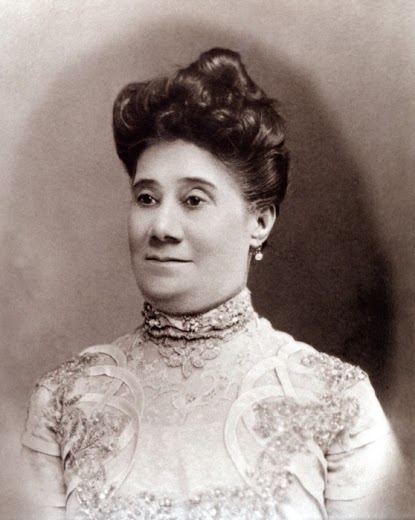Philanthropist’s values foster hospital plans, name lives on in Ames

Courtesy of the Ames Historical Society
Mary Greeley, along with her husband Wallace, donated the land for the original Ames library. After her death, her husband built and dedicated Ames’ first hospital in her name.
July 9, 2014
Editor’s note: In celebration of the 150th anniversary of our city, the Daily will highlight prominent figures, places and events in Ames’ history each week.
Mary Greeley has been a well-known woman in the town of Ames since its very beginning. Her love of Ames spread through involvement in both the social and cultural setting.
Mary and her husband, Captain Wallace Greeley, built their first home on the corner of Douglas Avenue and 12th Street after purchasing lots in 1882, according to the Ames Historical Society. The Greeleys had donated the lots used for the original library building in Ames. This led Mary to serve on the first library board and she continued to do so up until her death in 1914.
Aside from Mary’s library duties, she found an interest in playing the piano. She often played two piano selections to entertain guests that visited her home.
The Greeley’s generosity made Ames very much their own. The only problem was the lack of a hospital. The Greeleys had lost their only two children in infancy and Wallace became even more aware of the need for one in the growing Ames community after Mary’s death, according to the Ames Historical Society.
His personal experience led to the planning and construction a future hospital. Wallace brought Dr. E.S. Gilmore, a medical specialist from Chicago, to consult regarding the building’s design and to collaborate with doctors living within the Ames community.
After Ames doctors talked with Gilmore, they recommended Wallace choose a site for the hospital within 11th and 12th Streets on the east side of Douglas Avenue, according to the Ames Historical Society. The site was ideal for any future expansions.
On Dec. 29, 1915, an announcement was made that Wallace had signed the contract for construction. The hospital was completed in late September of the following year.
The Mary Greeley Memorial Hospital was dedicated Sept. 24, 1916, and 2,000 people listened to Wallace speak of Mary’s affection for Ames and how the hospital would reflect it, according to the Ames Historical Society.
“It affords me great pleasure, more than words can express, that I contribute towards the welfare of not only those now in need but also for those who will be here long after we have passed away,” Wallace said.






